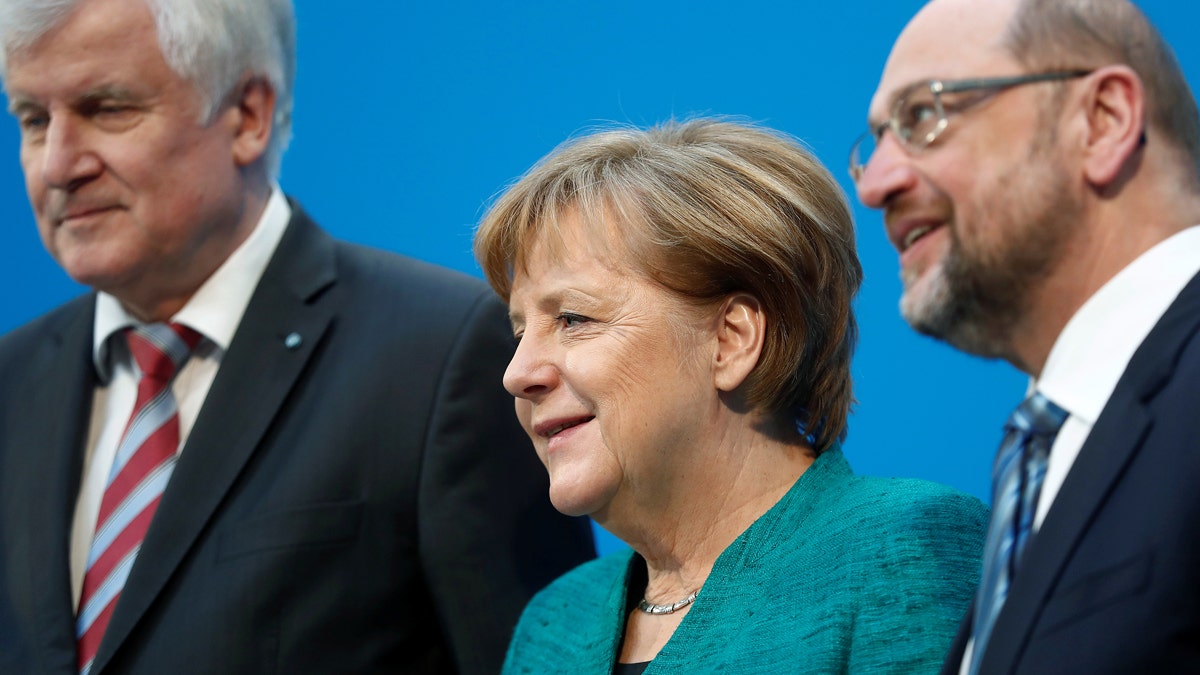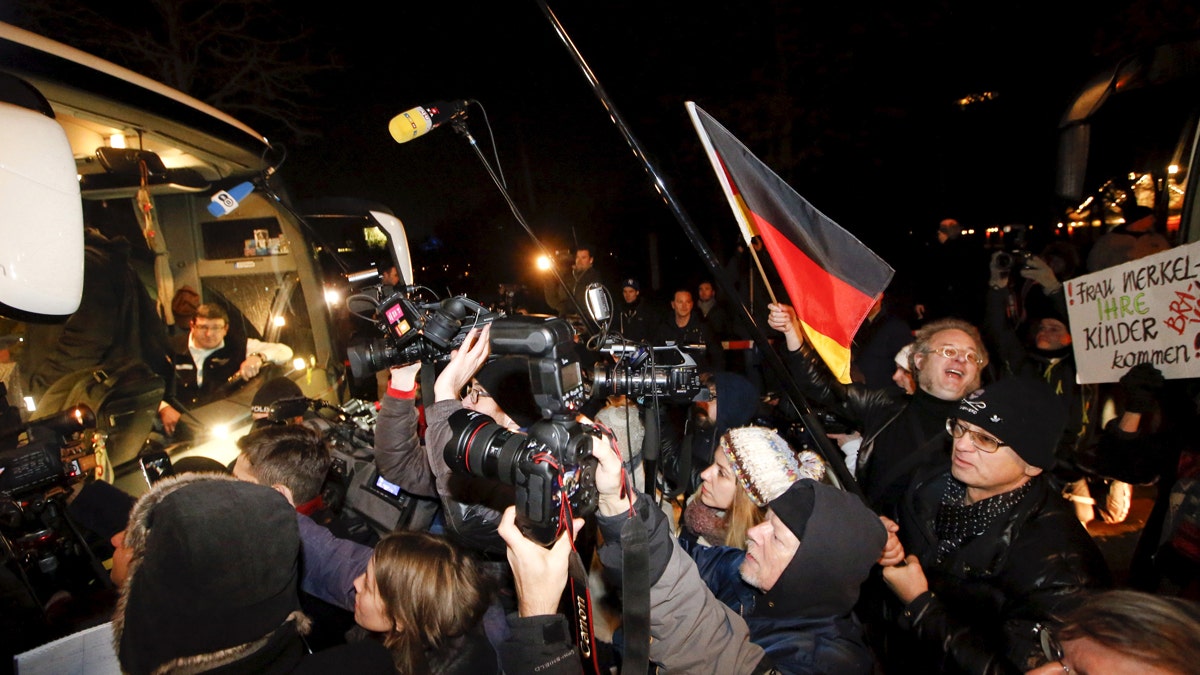
Christian Democratic Union leader and German Chancellor Angela Merkel, Christian Social Union leader Horst Seehofer and Social Democratic Party leader Martin Schulz pose after a statement in Berlin, Germany, Feb. 7, 2018. (Reuters)
German Chancellor Angela Merkel’s conservatives and their Social Democrat (SPD) partners are facing a mix of skepticism, relief and resignation after forging a deal on a new coalition.
The deal, which would end months of political paralysis after Merkel had failed to form a coalition with two smaller parties, will be tested when the SPD’s membership vote early next month on whether to ratify it.
Merkel’s camp was forced to defend the deal that sees the conservatives cede the crucial finance minister post to the Social Democrats in exchange for a fourth term in office for the woman who has dominated European politics for the past 12 years and has come to be seen, rightly or wrongly, as a bulwark of Western values and globalization amid populism's rising tide.
Christian von Stetten, a lawmaker from Merkel’s own Christian Democrats (CDU), told Reuters the allocation of cabinet posts, and the finance ministry in particular, had been “a political mistake.”
Even so, both camps made major sacrifices to secure a deal. The agreement promises a half-time review after two years, when the parties will reassess things – which is already seen as a possible opportunity for Merkel finally to step down.
“If it happens, the fourth Merkel cabinet will in some respects resemble the last cabinets of Helmut Kohl and Helmut Schmidt,” wrote Kurt Kister, editor of the Sueddeutsche Zeitung newspaper. “This government could be captioned, ‘Won’t last long.’”
Even that may prove optimistic if SPD leader Martin Schulz fails to persuade the party’s 464,000 members to ratify the deal in a postal ballot, the results of which will be announced on March 4.

Media and demonstrators waving a German national flag (R) and holding a banner wich reads "Mrs. Merkel your children are coming! Bravo." stand next to a bus with refugees from the Bavarian town of Landshut, after its arrival to the Chancellery building in Berlin, Germany, January 14, 2016. (Reuters)
The center-left party saw its previous four years in “grand coalition” with the conservatives rewarded with its worst poll result in decades in September’s national election, and the slide has continued since.
Opponents of the deal say Schulz’s team failed to put a liberal stamp on the program, which continues to promise the budget austerity that has been the hallmark of Merkel’s three governments. It remains to be seen if they will be persuaded by his response that the SPD will control top ministries including finance, foreign affairs and labor.
Schulz’s defenders emphasize new commitments on welfare spending, housing and pensions, and worker-friendly labor law reforms.
US SOLDIER FOUND DEAD IN GERMANY NEAR TRAIN STATION
The political right’s media has blasted the deal, though, which could earn it points on the left. The mass-selling daily Bild said Merkel had sold out.
“Chancellor at any price,” Bild wrote on its front page. “Merkel gifts the SPD the government.”
In a Europe that’s been riven by the issue of mass immigration and the rise of right-wing populist leaders, the potential German coalition was greeted with approval by others on the continent.
French Finance Minister Bruno Le Maire said the coalition agreement was “very positive” and opened the way for convergence with France on reform of the euro zone, something that the SPD had championed.
Reuters reports the coalition deal contains commitments to contribute more to the EU budget, to develop the euro zone’s bailout fund into a full-blown European Monetary Fund, and to support the use of budgetary means to shield the euro zone from crises.
“Now it is high time to build an inclusive pan-European Grand Coalition for an ambitious budget, wise agreement on migration and a better Eurozone,” Donald Tusk, the European Union leaders’ chairman, tweeted.
